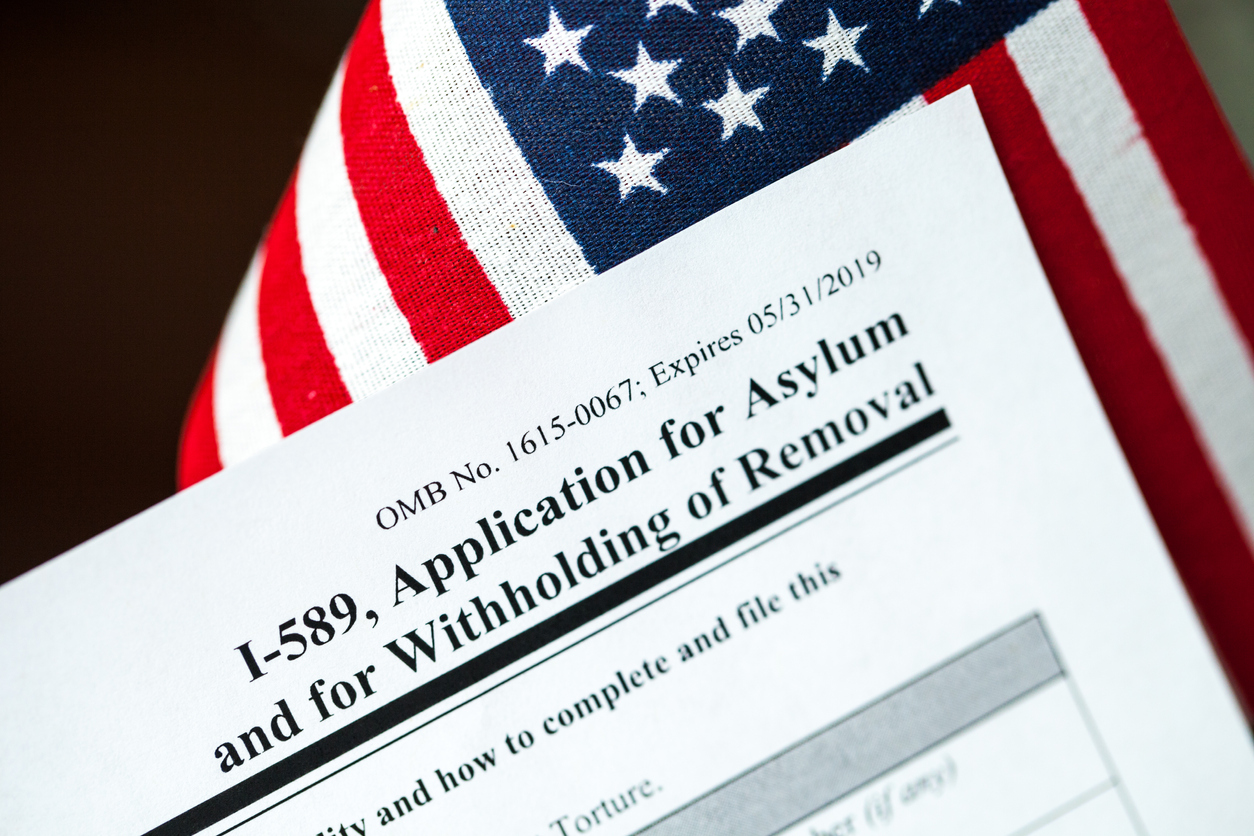 (Courtesy of iStock/Eblis)
(Courtesy of iStock/Eblis)For the nearly
184,000 people who crossed the U.S.’s Southwest border in July, the trip across all sorts of terrains and international borders is just the beginning of their journey. The next step for those seeking asylum is a court date, where the judge considers factors such as why the refugee’s home country is not a viable option for them anymore. Even with asylum lawyers and nongovernmental agencies working to assist refugees in their cases, the sheer volume and complexity of cases can be overwhelming.
At DePaul, political science faculty member Katy Arnold and her students are writing meticulously researched reports to help asylum seekers present their cases. Arnold, director of the Refugee and Forced Migration Studies program, is leading the effort to compile reports on country conditions that document government abuses, criminal organizations, economic oppression and other factors putting citizens at risk. In this Q&A, Arnold discusses how the reports will help attorneys and nonprofit organizations assisting asylum seekers in Chicago.
How did you get started on this work?
In the summer of 2021, a group of DePaul students and I compiled a 200-plus page report on Afghanistan for asylum seekers following the fall of Kabul to the Taliban. Now, with the help of a grant from the
DePaul Migration Collaborative Solutions Lab and local nonprofit
The Resurrection Project, we are working on reports for 10 of the most frequent countries of origin for asylum seekers entering Chicago. These include Benin, Cameroon, Colombia, Congo-Kinshasa/DRC, Guatemala, Haiti, Honduras, Mexico, Togo and Venezuela. The reports should be ready in the next year for distribution.
 Katy Arnold, a DePaul political science faculty member, and her students are writing country conditions reports to help asylum seekers present their cases to the courts. (Photo courtesy of Katy Arnold)Why are these country reports so critical for refugees seeking asylum?
Katy Arnold, a DePaul political science faculty member, and her students are writing country conditions reports to help asylum seekers present their cases to the courts. (Photo courtesy of Katy Arnold)Why are these country reports so critical for refugees seeking asylum?In the U.S., refugee protection narrowed and become inaccessible to most applicants after 1996 policies diminished migrant rights and authorized mass deportation and detention policies. The Patriot Act of 2001 only furthered these issues.
Accessing refugee status has been complicated by policy closure toward migrants on multiple levels, evidenced in the mass detention and deportation policies. These policies affect and entrap all refugee arrivals, making their cases much more difficult to navigate. Courts increasingly demand expert witnesses or a report on country conditions for judges that help to explain complicated situations such as politically induced poverty in Venezuela.
That’s where we come in. Our work lays out clear and documented reasons why a refugee’s home country is not a safe alternative for them anymore. These reports list expert witness accounts and documented cases from trusted organizations, including the United Nations or Amnesty International. The reports assist asylum-seekers in their cases, and nonprofits and lawyers who are already strapped for time and support.
What are some of the reasons asylum seekers cannot stay in their home country? Why don’t they travel to a country closer to their own?
According to the United Nations, “refugees are persons who are outside their country of origin for reasons of feared persecution, conflict, generalized violence, or other circumstances that have seriously disturbed public order and, as a result, require international protection.”
People often ask me — even people in leadership positions — to define a refugee or ask why they can’t return to their native country. The answer often is that the country they are coming from is one of the most dangerous in the world, and their life would be at risk if they went back.
These are countries that have documented crimes against women, LGBTQ populations and minority religions. Moreover, often the countries bordering a refugee’s home country have human rights issues themselves. Many judges and government officials are not aware of these conditions. Our country conditions reports help fill in many gaps.
What is one piece of information you have learned by working on these country conditions reports?
I’ve learned about the unfortunate life and death situations these asylum seekers are fleeing when they arrive at the U.S. border and why their case before the judge is so critical. The case could be the difference between refugee status, which is a path to U.S. citizenship, and temporary protected status, which makes you incredibly vulnerable. The latter could make a person stateless, meaning they’re unable to stay in the U.S., but not able to risk returning to their home country.
What can help asylum-seekers is competent legal representation and necessary information at their fingertips. Quite a lot of people who would be eligible for refugee status aren’t given adequate representation or the necessary information to make their case. My students and I are trying to fill in that gap in Chicago.
Russell Dorn is a manager of news and integrated content in University Communications.